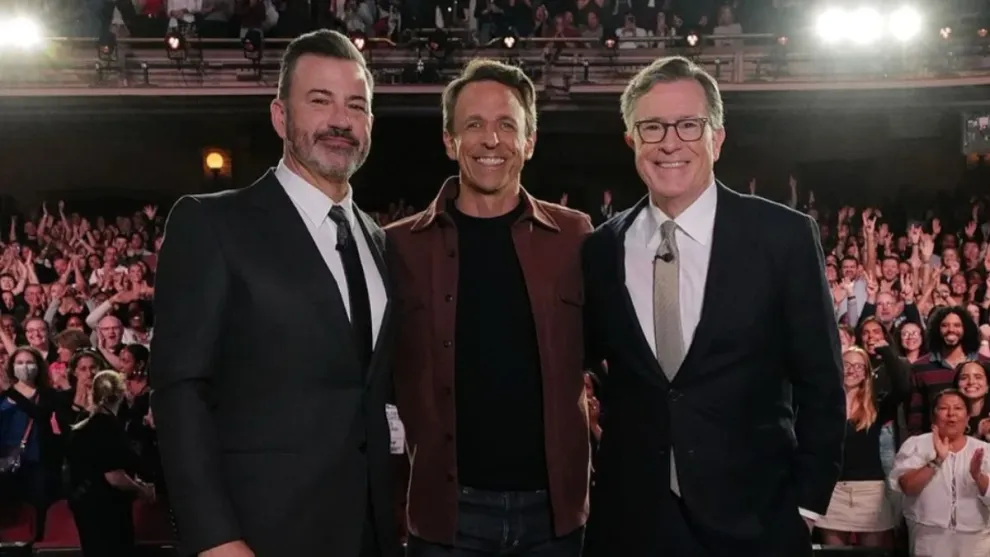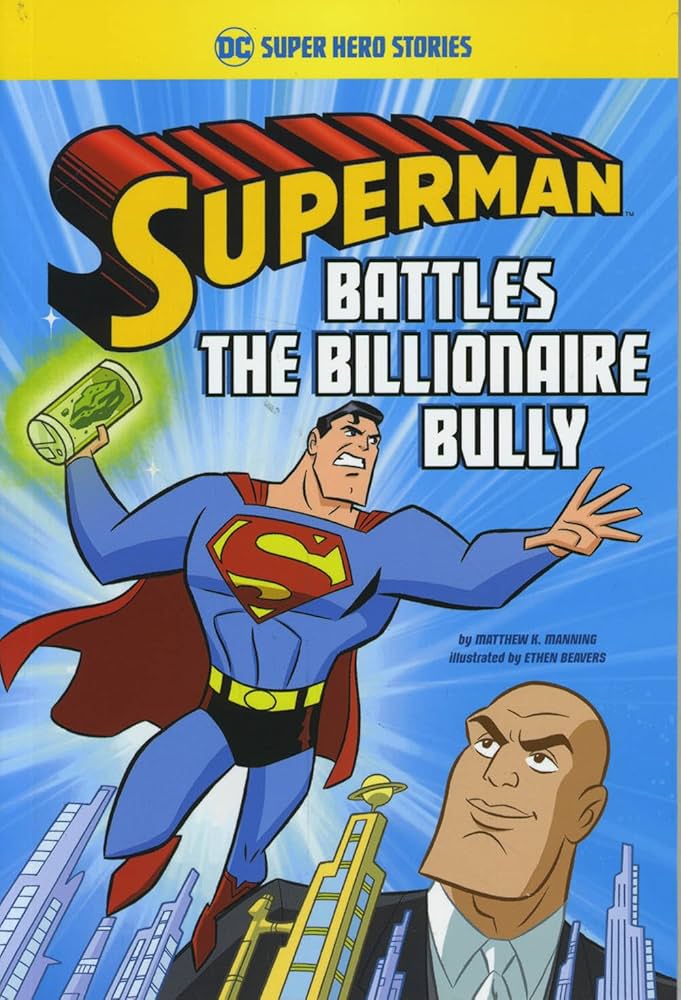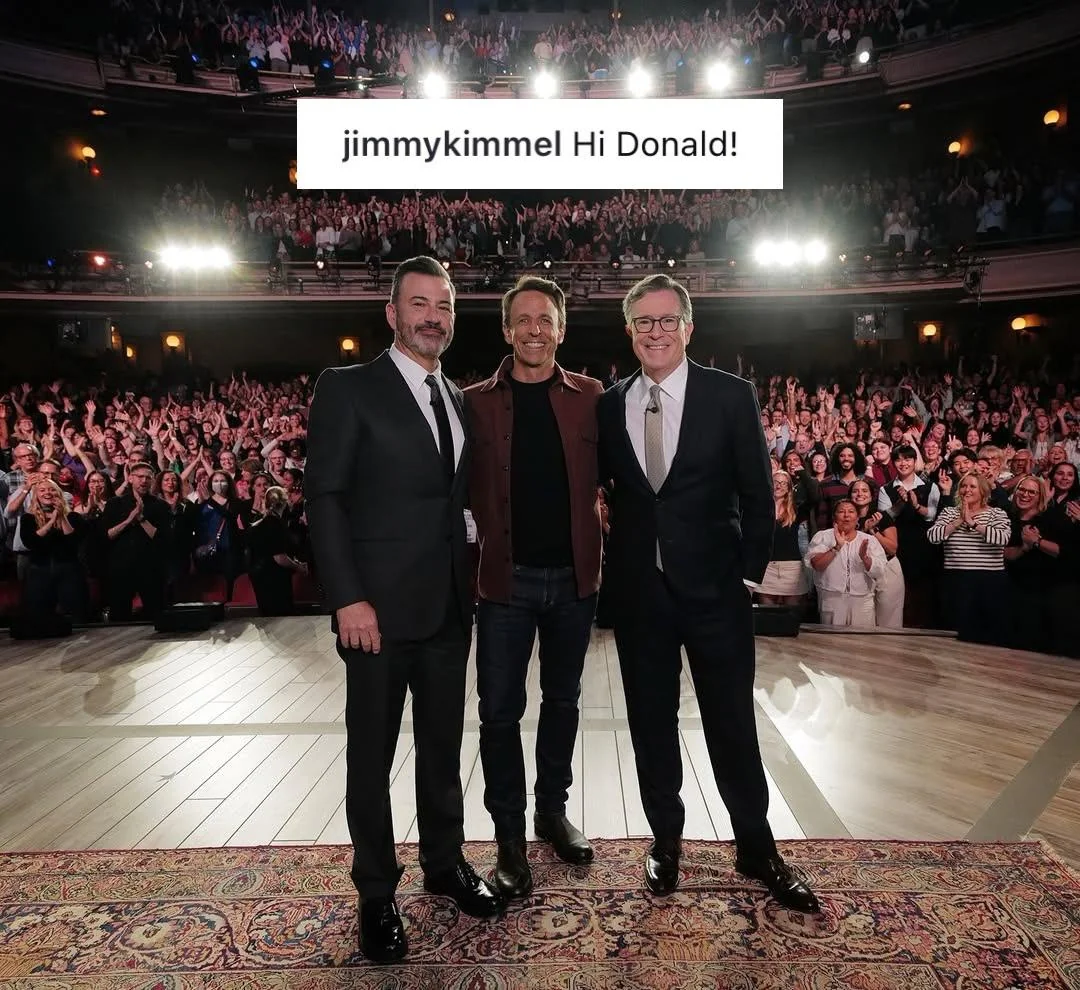As efforts to intimidate and eliminate Trump critics in media continues, is Hollywood showing that banding together is key to survival?

If you haven’t seen it yet, James Gunn’s rebelliously in-your-face superhero series Peacemaker last week took one of the biggest storytelling gambles I have seen in a major franchise.
(To see Gunn explain what I’m talking about, click here to see a clip from his video podcast.)
And it speaks directly to the deteriorating political situation in America right now – particularly, the way an increasingly extremist right-wing political movement has demonized vulnerable marginalized people, singled out in part by their identity, for political gain.
At the heart of the storytelling twist on Peacemaker is a bunch of questions Americans are facing right now: Is it okay to create a paradise for some, if it involves subjugating others based on their identity? Would you step into a world which offers everything you ever wanted, if the cost was living in a country where prejudice and racism were at the core of mainstream politics?
This is how artists create work which speaks to the modern moment, even when it springs from scripts written long before things got as a bad as they are now. Add Peacemaker to the list of series – including The Handmaid’s Tale, Andor, The Boys and The Last of Us – which warn about the excesses which can emerge when out-of-control authoritarians come to power.
The limited power of art to change people’s minds looms for me now, as the Trump administration moves more aggressively to silence artists who criticize its tactics or policies.
Now, and when I first wrote about this months ago, I can’t help wondering: How does a generation raised on Star Wars, The Handmaid’s Tale, The Boys, Marvel movies and the legend of Superman sign off on handing a bullying leader the power to crack down on media outlets, fire government workers who disagree with him and use the powers of government to persecute political enemies?

Elsewhere in pop culture, it has been interesting to watch how late night TV hosts have banded together in the wake of Jimmy Kimmel’s suspension and unsuspension over the past week, to help galvanize attention amid Trump’s crackdowns.
Kimmel had already planned to take his show to Brooklyn before Disney bent the knee, but his westward trip provided the opportunity for Stephen Colbert, Seth Meyers and Conan O’Brien to get involved – with Kimmel and O’Brien appearing on Colbert, while Colbert and Meyers stopped by Kimmel’s show.

Kimmel, Colbert and Meyers posed for a photo at Kimmel’s show, which Kimmel posted on Instagram with a message trolling President Trump. And Kimmel provided some telling details about events during his suspension while on Colbert’s show, admitting he thought “I’m never coming back on air,” after Disney told him they were pulling the series indefinitely.
These combos are super rare and help keep late night shows in the spotlight, emphasizing how a crackdown on one of them can lead to setbacks for all of them. In a way, these hosts have to find ways to keep reminding the world of their value; late night TV shows occupy a unique space in pop culture, and the blowback for Disney after suspending Kimmel might be proof that the industry has taken these programs for granted too long.
And as these hosts labor to convince the world they still deserve attention from an increasingly fragmented audience, one other truth emerges from Kimmel’s travails.
Preserving free speech in America requires everyone in Hollywood to get involved, especially executives who run/control/own big media companies.
That’s why it’s heartening to see Jane Fonda revive the organization her father created during the McCarthy era to preserve free speech: Committee for the First Amendment.
She and her supporters claim backing from more than 550 names, including A-list performers like Viola Davis, Pedro Pascal, Julia Louis-Dreyfus, Glenn Close, Wanda Sykes, Spike Lee and more. I’m wondering if this effort was inspired by the petition the ACLU circulated last week protesting Kimmel’s suspension, also signed by lots of big name performers.
But I haven’t yet seen many details on what Fonda’s group plans to do. It’s worth noting that her father’s version of the group, which was formed in 1947 and included names like Lucille Ball and Humphrey Bogart, was hobbled by accusations that it was secretly controlled or influenced by the Communist party, which Bogart denied.
In the end, Hollywood players seem to realize their best chance of resisting intimidation and marginalization by the Trump administration is sticking together and using their fame to draw attention to authoritarian excess.
But it is tough to avoid the sense of a ticking clock, counting down the minutes until the administration finds new strategies aimed at unfairly silencing critics and rewarding corporate leaders willing to put their own profits and business goals ahead of the preservation off democracy in America.